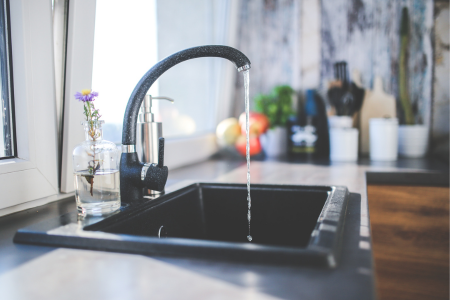
8 FAQs About Residential Greywater Systems
Water may seem like an unlimited resource. But the reality is that humans can only readily use less than one percent of the water on this planet. That’s prompted some homeowners—especially people living in communities that already face water restrictions—to explore ways to recycle some of their water with a greywater system.
Here are eight questions that curious homeowners frequently ask about making more of the water you use in your home.
1. What is greywater?
Greywater is the water that flows down sink and shower drains. It also includes water that drains from your dishwasher and washing machine. Think of greywater as the middle ground between clear (drinkable) water from your faucets and the “black" wastewater you flush down your toilet.
But not all greywater is equal. Typically, water from bathtubs, showers, and bathroom sinks is cleaner and more straightforward to recycle than water from kitchen sinks and dishwashers, which may include grease and food particles.
2. How can homeowners use greywater?
In most cases, greywater is used to irrigate outdoor plants or grow backyard vegetables, particularly where water is scarce. Greywater can also be used to flush toilets.
By using less fresh water, homeowners can reduce their water bills while conserving a natural resource that’s becoming increasingly precious.
Homeowners not connected to municipal sewer systems may also prefer to recycle greywater to reduce the load on their septic tank.
3. How do greywater systems work?
Simple irrigation-style systems rely on gravity to move water outside a house and distribute it through a collection of buried pipes, similar to a French drain. Some systems include a filter to capture debris and impurities before dispersing water into the yard.
If your greywater must move uphill or across a flat yard, you’ll probably need to add a holding tank and a pump.
Greywater systems include valves at each drain-source so homeowners can opt to divert water back to their septic tank or a municipal sewer line. For example, suppose your area experiences extended freezing temperatures, and your greywater system is only used to water plants during the growing season. In that case, you’ll want to shut it down in the winter.
4. Are greywater systems expensive?
It depends on their complexity. For example, a simple DIY gravity-fed system that diverts water from your washing machine to irrigate plants in your yard may cost under $300 in materials (plus labor, if needed).
At the other extreme, various manufacturers offer systems that collect water throughout a home and redirect it for irrigation or to flush toilets. Installing these systems while constructing a new home typically costs less than retrofitting an existing residence.
5. Is greywater safe?
Yes, as long as it’s handled appropriately. Never drink or touch greywater since it may contain bacteria and chemicals. It’s best to let greywater slowly seep through the ground instead of spraying it or pooling it.
When using greywater to grow fruits, vegetables, and herbs, never let it contact the edible portions of plants. You should never use it for root vegetables like carrots, turnips, or beets.
Also, don’t store greywater in a holding tank for more than 24 hours because it will start decomposing and creating foul odors, especially if the water comes from kitchen drains.
6. What household products are compatible with greywater systems?
All personal and household products washed down drains, including soaps, detergents, shampoos, and household cleaners, should be non-toxic and biodegradable. Avoid laundry boosters containing boron (borax) salt, too, since they aren’t toxic to humans but can harm plants.
Sodium is also hard on plants. So, if you have a water softener that uses salt blocks or pellets, consider replacing it with a potassium softener.
7. Are greywater systems legal?
Communities can have very different building codes and regulations, so the answer depends on where you live. The best advice is to research your state and local laws and discuss your plans with community officials before implementing them.
8. What are greywater systems’ maintenance requirements?
It depends on your setup. For example, a gravity-fed system connected to a washing machine that only uses bio-degradable soap won’t need to include a filter or a pump—two components that require periodic maintenance in more complex and comprehensive greywater systems.
In contrast, greywater systems that flush toilets may require frequent maintenance, including manually cleaning filters and adding disinfectants to prevent bathroom odors.
